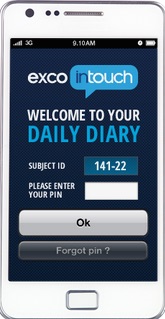 Exco InTouch, the clinical trial technology vendor best known for its large-scale COPD program with AstraZeneca and the NHS trusts in England, has raised $5 million (3.2 million pounds). The round was led by Albion Ventures, according to British news site HealthInvestor. Scottish Equity Partners, Exco's largest shareholder, also contributed to the round.
Exco InTouch, the clinical trial technology vendor best known for its large-scale COPD program with AstraZeneca and the NHS trusts in England, has raised $5 million (3.2 million pounds). The round was led by Albion Ventures, according to British news site HealthInvestor. Scottish Equity Partners, Exco's largest shareholder, also contributed to the round.
The Nottingham, England-based company previously raised $4.7 million (3 million pounds) in late 2011. At the time, its big project was working with Pfizer on a novel, fully remote clinical trial of the over-active bladder drug Detrol. That trial would later be discontinued for lack of participation, with plans to try again in the future.
Exco offers patient engagement and data collection, including patient-reported outcomes software for mobile devices -- they now have public-facing apps on the three major platforms, iOS, Android, and Windows8. The company originally worked with clinical trials exclusively, but has been branching out more and more for ongoing disease management programs with healthcare providers. The company has worked with Pfizer and AstraZeneca on major pilots, and claimed in 2011 to have worked with nine of the top ten pharma companies in the world. Additionally, in 2012 Exco InTouch launched a project with Vodafone.
CEO Tim Davis spoke about MeAndMyCOPD, the AstraZeneca program with the NHS, at the mHealth Summit this week. He stressed the value that the program can have for NHS by reducing readmissions for one of the most expensive chronic conditions in England.
"For those NHS trusts, COPD patients are typically known as frequent flyers, because they will see them between eight and ten times a year. And they’ll be exacerbating, so they’ll be in pretty poor state and when they come into the hospital they’ll be there for at least a week," he said. "Typically a bed day cost, as the NHS calculated, is around 2,000 pounds [$3,100] per day, so quite expensive, and several million of these patients are in the UK at the moment."
He said that while the program is going well, the transition from the clinical trial setting to the real world has required some flexibility.
"This initiatially came out of clinical trial work. It was around an electronic diary and we were working with these patients and linking into a series of Bluetooth connected devices, a spirometer and Bluetooth-jacketed drug delivery devices," he said. "That was OK within the clinical trial because it’s very much a walled garden, as some of you I’m sure will know. It’s quite controlled in being able to engage the patient through clinics and train clinicians. When you’re working in general healthcare, you have to unscrew things a little bit and kind of go with the flow."

















